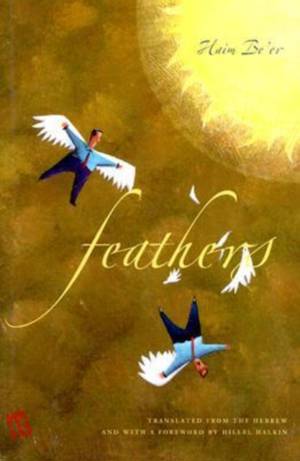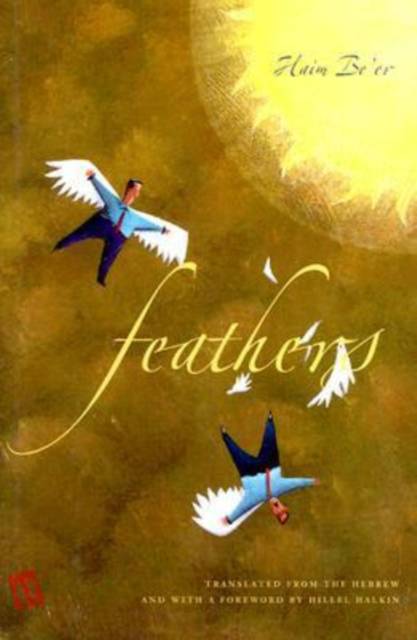
Bedankt voor het vertrouwen het afgelopen jaar! Om jou te bedanken bieden we GRATIS verzending (in België) aan op alles gedurende de hele maand januari.
- Afhalen na 1 uur in een winkel met voorraad
- In januari gratis thuislevering in België
- Ruim aanbod met 7 miljoen producten
Bedankt voor het vertrouwen het afgelopen jaar! Om jou te bedanken bieden we GRATIS verzending (in België) aan op alles gedurende de hele maand januari.
- Afhalen na 1 uur in een winkel met voorraad
- In januari gratis thuislevering in België
- Ruim aanbod met 7 miljoen producten
Zoeken
€ 42,95
+ 85 punten
Omschrijving
When first published in 1979, Haim Be'er's Feathers was a critical and commercial success, ushering in a period of great productivity and expansiveness in modern Hebrew literature. Now considered a classic in Israeli fiction the book is finally available to English readers worldwide. In this, his first novel, Be'er portrays the world of a deeply religious community in Jerusalem during the author's childhood and adolescence in the 1950s and 60s. The novel is filled with vivid portraits of eccentric Jerusalem characters, chief among them the book's main character, Mordecai Leder, who dreams of founding a utopian colony based on the theories of the nineteenth-century Viennese Jewish thinker Karl Popper-Lynkeus. Similar high-flying dreams inspire the family of the narrator, strict Orthodox Jews with impractical minds and adventurous souls--men such as the narrator's father, who periodically disappears from home on botanical expeditions meant to prove that the willow tree of Scripture is in fact the Australian eucalyptus. Experimental in structure and mood, Feathers features kaleidoscopic jumps in time, back and forth in the narrator's memories from boyhood to adulthood. Its moods swing wildly from hilarity to the macabre, from familial warmth to the loneliness of adolescence. Jerusalem and its inhabitants, as well as the emotional life of the narrator, are splintered and reconstituted, shattered and patched. This fragmentation, combined with a preoccupation with death and physical dissolution and dreamlike flights of imagination, evokes an Israeli magical realism. Feathers was chosen one of the 100 Greatest Works of Modern Jewish Literature by the National Yiddish Book Center.
Specificaties
Betrokkenen
- Auteur(s):
- Uitgeverij:
Inhoud
- Aantal bladzijden:
- 235
- Taal:
- Engels
- Reeks:
Eigenschappen
- Productcode (EAN):
- 9781584653714
- Verschijningsdatum:
- 1/03/2004
- Uitvoering:
- Hardcover
- Formaat:
- Genaaid
- Afmetingen:
- 161 mm x 230 mm
- Gewicht:
- 530 g

Alleen bij Standaard Boekhandel
+ 85 punten op je klantenkaart van Standaard Boekhandel
Beoordelingen
We publiceren alleen reviews die voldoen aan de voorwaarden voor reviews. Bekijk onze voorwaarden voor reviews.









